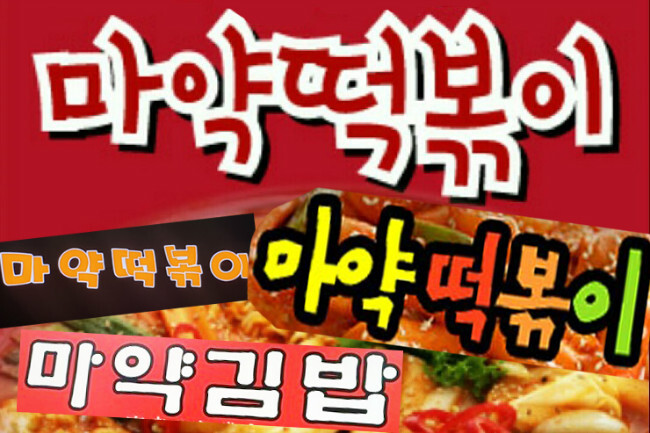
Chungbuk Province is set to curb the prevalent practice of using the term "drug"(mayak) in food names, such as "Mayak tteokbokki" and "drug kimbap."
The "Ordinance on Improving the Culture of Using Narcotics-Related Terms in Food, etc., in Chungcheongbuk-do," proposed by Provincial Assembly member Park Yong-gyu (Okcheon 2), was passed by the Construction, Environment, and Firefighting Committee of the Provincial Assembly on the 23rd.
The ordinance outlines specific measures to prevent businesses from using drug-related terms in food labeling and advertising. This includes establishing and implementing plans to improve the culture of using narcotics-related terms, conducting surveys within the province, recommending policy initiatives, and promoting improvement projects.
The ordinance is scheduled for final approval at the second plenary session of the extraordinary assembly on the 30th, after which it will be enacted.
Assembly member Park stated, "This ordinance revision was propulsion due to the concern that the frequent use of drug-related terms in food advertisements could create a distorted perception of drugs, especially among children and adolescents."
He emphasized, "The casual use of expressions like 'drug tteokbokki' and 'drug kimbap' raises concerns that children might develop a positive perception of drugs. We need to establish institutional mechanisms to foster a healthy language culture and raise awareness about the dangers of drugs."
While the article does not delve into the specifics of how the province will enforce this ordinance or the potential penalties for non-compliance, similar regulations in other regions and countries offer some insight. For instance, advertising standards authorities often have the power to issue warnings, require the removal of misleading or inappropriate advertisements, and even impose fines on businesses that violate regulations.
The rationale behind this ordinance aligns with broader public health concerns regarding drug normalization and the potential for desensitization, particularly among vulnerable youth. Research suggests that repeated exposure to certain terms, even in seemingly innocuous contexts like food names, can influence perceptions and attitudes over time. By regulating the use of "drug" in food marketing, Chungbuk Province aims to mitigate this potential risk and promote a more responsible linguistic environment.
The ordinance also reflects a growing awareness of the power of language in shaping societal attitudes towards sensitive issues like drug use. While the intention behind using "drug" in food names is often to convey an addictive or intensely appealing flavor, the potential for unintended negative consequences, especially concerning the perception of illegal substances, has prompted legislative action.
Furthermore, this initiative can be seen as part of a larger effort to combat drug abuse and promote public safety. By addressing the seemingly minor issue of food naming conventions, the province is taking a proactive step in fostering a culture that is more aware of and resistant to drug-related issues. This move could also encourage other regions to consider similar measures to regulate potentially problematic language use in commercial contexts.
The implementation of this ordinance will likely involve collaboration between various provincial agencies, including those responsible for food safety, public health, and consumer protection. Public awareness campaigns and educational initiatives may also be necessary to ensure that businesses understand and comply with the new regulations.
In conclusion, Chungbuk Province's move to regulate the use of "drug" in food names signifies a proactive approach to addressing potential public health concerns and fostering a healthier language culture. By preventing the normalization of drug-related terms in everyday contexts, the province aims to protect vulnerable populations and promote greater awareness of the dangers of drug use. The successful implementation of this ordinance could serve as a model for other regions grappling with similar issues.
[Copyright (c) Global Economic Times. All Rights Reserved.]



























